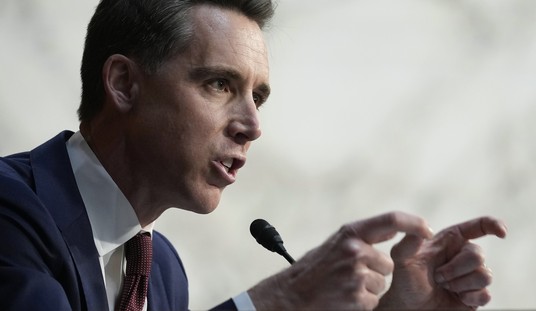As the November 2nd election draws closer, it appears evident that the GOP will score a major victory. The Cooke Report, a non-partisan group known for its polling accuracy, conservatively predicts that Republicans will pick up between 35 and 45 seats. Assuming this outcome, what are the implications for President Obama? Will he be able to win reelection in 2012?
The midterm elections of 1982 and 1994 offer important insights into the 2010 election. After an economy that saw the unemployment rate rise from 7.5% in January of 1981 to an average of 9.7% in 1982, the Republicans lost 26 seats in the House. Similarly, unpopular policies ranging from the 1993 tax increase on individuals making over $125,000 to the failed HillaryCare resulted in a loss of 54 Congressional seats for the Democrats in 1994.
Both of these elections were referendums on the perceived negative direction of the country. The same will be true with the midterm election this year. When the stimulus package was passed in March of 2009, the unemployment rate stood at 6.7%. Despite the $787 billion that was pumped into the economy, the unemployment rate has risen to an abysmal 9.6%.
Obama’s prospects in 2012 will depend on his political pragmatism. Reagan was able to reverse his fortunes through policies that were advantageous to the American economy. The Economic Recovery Tax of 1981 created growth by cutting the top marginal tax rate from 70% to 50% and cutting the lowest tax rate from 14% to 11%. The later growth that emanated from these tax cuts led to his landslide reelection in 1984 over Walter Mondale.
Recommended
Despite what Milton Friedman characterized as his socialist views, Clinton took the pragmatic route and pursued a more conservative policy agenda after 1994. At the encouragement of the Republican Congress, President Clinton signed welfare reform into law through the Personal Responsibility and Work Opportunity Reconciliation Act in 1996. He also placed an emphasis on fiscal responsibility which later led to surpluses of $69 billion in 1998 and $125 billion in 1999.
Will Obama follow the course of Reagan and Clinton? It seems unlikely. For starters, Obama is intent on allowing the Bush tax cuts to expire. This would result in increases for every tax bracket. The tax brackets which are currently 10, 15, 25, 28, 33 and 35 percent would be replaced by a new tax structure resulting in the following brackets: 15, 28, 31, 36, and 39.5%. Many have concerns over increasing taxes on the wealthiest individuals due to they’re instrumental in job creation. This will have a depressing effect on an economy that is certain to experience a double dip recession.
Equally problematic is the announcement of further stimulus measures by Obama in Milwaukee on Monday that the Administration is considering a long-term jobs bill. Despite overwhelming evidence to the contrary, Obama continues to believe that high unemployment can be cured through even more spending.
Reagan and Clinton were reelected due to the positive effects of their legislation. Reagan was acting on principle when he cut taxes while Clinton reluctantly moved to the right in order to allow for economic growth. Obama however, is committed to the liberal ideology and the redistributionary policies that come with it. The new Republican majority will pose problems for the ability of Obama to pass his agenda but this will not be a sufficient excuse. The 2012 election will be a further referendum on the economy and if Obama continues to pursue liberal policies, this will be his downfall.

























Join the conversation as a VIP Member